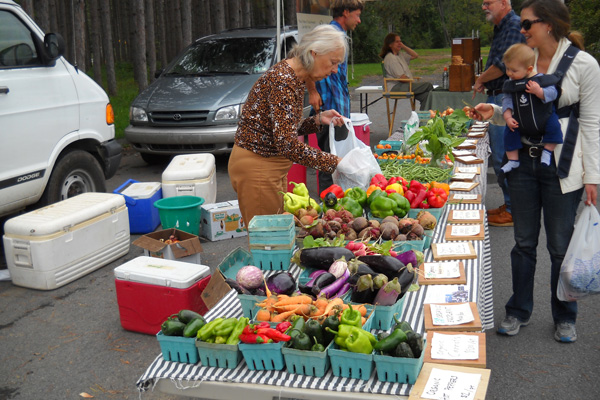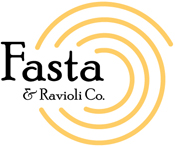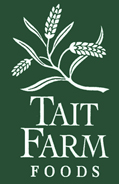-

Erin Donahue -

Christina Barkanic -

Brittany Trott -

Emily Wiley -

Jessica Reilley -

Chris Raines -

Will Nichols -

Emily Reddy -

Michele Marchetti -

Michele Frank -

James Gherardi -

Kit Henshaw -

Christina and Erin -

Kim Tait -

Erin McKinney -

Steve Spanelli -

Sam Komlenic -

Katherine Taylor Grofic -

James Eisenstein -

Jamie Oberdick -

Anna Lombardo -

LacCreta Holland -

Tony Ricci -

Local Food Journey -

Laura Young -

Kristin Camplese -

Harrison's Fresh + Local -

Danielle Matalonis -

Kristine A. -

Linda Weaver -

Naomi Elle Schwartz -

Dana Stuchul -

Cara McShane -

Brittany Smith -

Jessica Illuzzi - Frosty
-

Jessica Paholsky -

James Sechrengost -

Brad Yeckley -

Maya Althouse -

Jordan Reabold -

Kim Chase -

Maria Bryant - Alexandrea Scott
Why Organic? Part 2: Nutrition
Posted by James Eisenstein on 02/21, 2012 at 10:38 AM

This is what freshly picked, organically grown food looks like at Jade Family Farm stand at the Boalsburg Farmers Market. Photo Credit James Eisenstein.
If, as I argued in Part 1, organically produced food is more nutritious, it makes sense to eat it. It may cost a little more, but you are getting more for your money.
Over the past 15 years, we’ve learned more about complex healthy soils. They are teaming with little critters, beetle grubs, earthworms, bacteria by the billions, and fungi. Together, they facilitate plants’ ability to obtain micro-nutrients and minerals essential to good health. Compost, manures, and other organic substances in the soil provide these organisms with what they need to do their thing.
Conventional farming’s fertilizers, pesticides, and herbicides kill the life found in healthy soil (more on that in a future post). The salts in chemical fertilizers kill worms and more, and soil fungi don’t like fungicides. And these critters promote the nutritional value of food.
The Cornucopia Institute answered the “So What?†question nicely: “If [nutrients are] not in the soil; if we’re depleting the soil through industrial processes, and it’s not in the plants, it’s not in our milk, in our meat, it’s not in us. Many of the immune enhancing compounds that make life wonderful, make our food taste wonderful, and also protect us from cancers and a lot of chronic disease. The attributes to organic food are not just the avoidance of toxins. It’s also about what it does have in there, and that’s the superior nutrients.”
This seems like a logical, common-sense argument to me. But where’s the proof? An article published in the March, 2008 issue of State of Science Review by Charles Benbrook assessed all peer review articles comparing nutrition in organic vs. conventionally grown foods between 1980 and 2008, including 40 since 2001. The recent studies look not just at minerals and vitamins, but other nutrients (e.g. polyphenols) and antioxidants. After eliminating invalid studies, they identified 236 crops where nutrients in organic vs. conventional produce could be compared. They were able to assess values for four antioxidants, three precursors of vitamins (A, C, & E), potassium, phosphorous, total protein, and nitrates (higher levels being bad).
The State of Science Review research found organically produced foods were nutritionally superior in 145 of the 236 pairs (61%), conventionally grown superior in 87 (37%). Fifty-nine pairs had data on polyphenols and antioxidants, and the organic crop had more in three-fourths. In three-fourths of the 87 pairs measuring potassium, phosphorous, and total protein, organically grown food was superior. Numbers can be numbing (the numb in numbers one might say). Go back and read this paragraph again. These are real differences.
That isn’t all. The size of organic produce’s nutritional advantage was greater than in the smaller number of cases where conventionally grown produce had an advantage. The authors found that a quarter of the cases where the organic food was superior showed at least a 31% advantage. Only 6% of the instances which showed a nutritional advantage for the conventionally grown produce attained that big of an advantage. Looking at all 236 matched pairs and all 11 nutrients, organic foods had a “nutritional premium†of an average of 25%.
Yes, you get more for your money when you buy organic. Oh, and another thing: It tastes better.
![]() Author: James Eisenstein
Author: James Eisenstein
Bio: Unpaid Field Hand at Jade Family Farm | Former Penn State Professor
- Our Local Food Journey comes to an end
- Winter isn’t a quiet time at the farm
- Get the taste of garden season right now by growing herbs indoors
- All you need to know about PASA’s Farming for the Future conference









NO COMMENTS